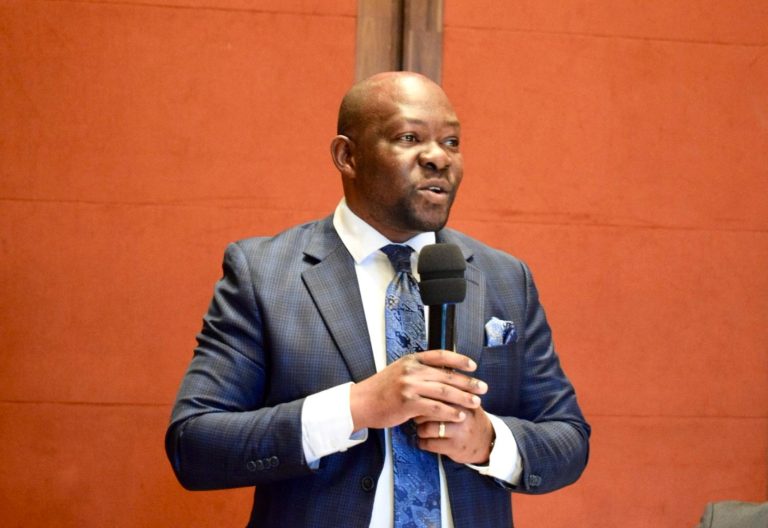Firms owners to furnish all details in new war on graft

All companies must disclose full details of the beneficial owners of its shares and lodge copies with the Registrar of Companies.
The directive by the registrar comes at a time when the investigative agencies have reported a surge in fraud and corrupt transactions perpetrated by individuals owning phony companies most of which only exist on paper and have no office or employees.
Section 93A of the Companies Act, 2015 requires all Kenyan incorporated companies to keep and lodge with the Registrar of Companies a register of its beneficial owners.
Following the gazettement of the enabling regulations — Companies (Beneficial Ownership Information) Regulations 2020 — the Beneficial Ownership (BO) e-Register was operationalised with effect from October 13.
“Every company is thus required to comply with the aforementioned provision of the Act and submit a copy of BO Register within 30 days of its preparation,” the Registrar of Companies directed.
Money laundering
The Directorate of Criminal Investigations (DCI) boss George Kinoti disclosed yesterday that this was part of a government campaign to crack down on money laundering and theft of public funds by individuals using phony companies.
Kinoti cited the National Youth Service (NYS) and Kenya Medical Supplies Agency (Kemsa) as some of the recent cases where some rogue government officials used brief case companies to loot taxpayers funds.
“Look at all big fraud cases involving looted funds and you will see how the suspects opened and registered complicated companies with connivance with some shrewd lawyers, creating an amoeba-like company that may have several other sub and sister companies, all associated but the ownership cannot be traced,” Kinoti told People Daily on the phone.
In the case of the multi-billion-shilling NYS scandal, it was established that some of the suspects, including Josephine Kabura were assisted in registering several companies irregularly awarded tenders at the institution.
Other beneficiaries of the NYS loot was the family of the Naivasha-based Ngiritas. Lucy Wambui Ngirita, her son Jeremiah Ngirita and her daughters Ann Wambui Ngirita, Phylis Njeri Ngirita had formed companies which they claimed had supplied foodstuff.
The latest classic cases where phony companies have been suspected to have been used to loot taxpayers is where Mathira MP Rigathi Gachagua used young and inexperienced persons, two salonists namely Julia Muthoni Mwangi and Anne Mukenya Kimemia, to open briefcase companies to get government and county tenders.
Beauty parlour
Mwangi is a former salonist at Gachagua’s Elison Hair and Beauty Salon and the proprietor of Asoma Enterprises while Kimemia is the owner of Jenne Enterprises.
“During statement recording, they appeared clueless, naïve, unprofessional and no idea of what their alleged companies had done. They had no known office space, staff and employees.
Both were operating from Gachagua’s office at Liaison House,” an investigation report read.
The latest regulations, expected to drastically such fraudulent transactions, additionally set out the information to be provided to the Registrar of Companies and statutory forms to be completed for filing with the Registrar.
According to the Act, a beneficial owner is the person who ultimately owns or controls a legal person or arrangements, or the one on whose behalf a transaction is conducted.
It is also that person who exercise ultimate control over other people in the company.
This implies that the trust arrangements with respect to shareholding in Kenyan companies will no longer be confidential.
Kinoti said investigations had revealed that there were so many companies mischievously registered but with vague directorship and shareholding ownership designed to cover real beneficiaries of looted public funds.
“There are hundreds of them and Hon. Rigathi Gachagua’s case is an example.
People open proxy companies but immediately they are credited, the proceeds are immediately transferred to the actual owner personal accounts. This is purely to avoid any forensic trail,” Kinoti said.
The DCI added that some rogue and shrewd lawyers were assisting in the forming of the companies that may have several other sub, sister or associated companies.
“Apart from concealing fraud they evade paying taxes or use the same to fraudulently demand for tax returns when it is actually stealing tax payers’ money from the from KRA,” Kinoti said.
In an earlier interview, the Ethics and Anti-Corruption Commission (EACC) chief executive Twalib Mbarak also observed that many companies doing business with counties were owned by proxies.














